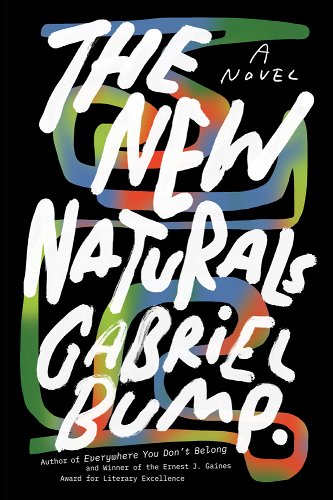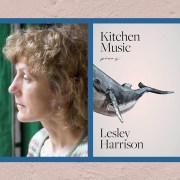[ad_1]
Gabriel Bump has always exuded hopefulness in his writing. The young narrator of his debut novel Everywhere You Don’t Belong quickly became a classic voice in Chicago literature, echoing a sense of dazzling and at times unrealized optimism about his community, reminiscent of writers like Sandra Cisneros and Stuart Dybek. But even if home became a bittersweet memory, Bump always made clear that the love one finds there can last.
Bump’s latest release is a fascinating evolution of that premise. The New Naturals is truly a novel for our modern moment, depicting an unforgettable cast of characters that, for various reasons, are living in an all too familiar state of exhaustion. When Rio and Sojourner lose their newborn child, their desire to find a place to start over evolves into a plan to build a new, underground society where everyone can feel loved and accepted. While The New Naturals in many ways is about personal and collective breaking points, Bump still finds hope for a better life even in the novel’s darkest places. It’s a stunning achievement in imagining possibilities for a spent world.
I spoke with Bump by phone about managing multiple interconnected storylines, the promise of and threats to utopia, and the role of collective action during moments of uncertainty.

Michael Welch
Your first novel, Everywhere You Don’t Belong, felt to me so intimate in that it’s a coming-of-age story of a young boy growing up in this one neighborhood in Chicago. The New Naturals kind of expands the scope in many ways, including with your characters and settings. Where did you see these two books building upon themselves as you sat down to work on your latest?
Gabriel Bump
I think just kind of in the basic storytelling, just having a book in close third-person as opposed to first I think allowed for more of that expansion. It allowed me to move around more, and that kind of lends itself to having the cast of characters I ended up having. Sojourner and Bounce were my first two characters that I had in mind, particularly Bounce which is weird to think about now because he doesn’t appear in the book until about a third of the way through.
But in the conceit of The New Naturals, I wanted to write a bigger book. Because with Everywhere You Don’t Belong, I wanted to write about South Shore where I grew up. Even if it’s not an autobiographical novel, it was still about Chicago and to a lesser extent Missouri, these places that were really influential in me becoming an adult. So, I feel like that book was an important love letter to that place, and with The New Naturals it felt to me like it was more about an idea and the conceit of the utopia. This idea of people seeking out a place and really needing a place where they can feel fulfilled. Then from there, the book just started blooming. And I really feel like I could’ve just [kept] stacking characters on top, because there’s really no limit of where that cast could go. But with Everywhere You Don’t Belong, the challenge was in expanding it, and with The New Naturals the challenge—or the fun part I should say—was in containing and focusing it.
Michael Welch
This book features a wide cast of characters who are searching for a way through personal or social crisis, including two men experiencing homelessness in Chicago, a disillusioned environmental journalist, and a couple grieving the loss of their child. What was your approach to tying these disparate stories together?
Gabriel Bump
Maybe starting from the beginning will help. The idea for this book started when I was living in Western Massachusetts where I went to graduate school, and was kind of just hanging around. I was spending a lot of time driving to Boston or near Fall River to teach whatever adjunct class I could find. So I was driving through a lot of repetitive landscape, and I was really just horribly depressed at the time and in a deep, deep rut. The world too felt destabilized and going in the wrong direction. So I started to think of this idea of “what would a better world look like and how do we achieve it?” I’d done some reading on quilombos in Brazil, these runaway slave societies that were built in the deep part of the rainforest, and how they become these kinds of functioning city states and massive collections of people. This society, this other way of living is a collective and you need all these different people to make it work. So in The New Naturals I thought “let’s focus on the people and less so about the utopia.” I wanted to focus really intimately on what drives a person to seek out this place, and then also how do all these sad people get happy again. Because if the idea doesn’t work, then what happens to them? Because these different kinds of worlds outside of society usually fail or come to some end. So the obsession of the book was in figuring out how these people get better.
Michael Welch
As a coming-of-age story, Everywhere You Don’t Belong always seemed to carry this level of youthful hopefulness about the future, whether or not that optimism materialized. But The New Naturals really explores the moments in which that hope has been exhausted, including exhaustion of our planet, our communities, and of ourselves. Can you talk a bit about writing and living in that era of exhaustion?
Gabriel Bump
At least from how I began writing, you know I was just going through a really hard time. When I started writing, I had moved to Buffalo just kind of on a whim. I had some money from my advance to rent an apartment above a coffee shop, and I was incredibly depressed and lonely but wanted some space to write my next book. My daily objective was just to write, that was how I’d keep going. So that might explain that darkness around the beginning. And in writing, rarely does the first page reflect where the book started. The first thing that I wrote was the scene where Bounce and Sojourner are together and Bounce is cooking breakfast and burning the food. That small failure and idea that this dude just can’t get things right was where this book started.
But, what happens and why there ends up being some hope in the book is that in my own life, I just got better. In this weird turn of events, Buffalo ended up being this saving influence in my life. I thought I’d just live there for a year and then move back to Chicago, but I ended up really loving living there. It feels like a small Chicago, like Logan Square or Wicker Park. The people are very similar, they have the same accents. So, I just got better as time went on, and I feel like that’s reflected in the novel. There is this element of hope at the end as people find salvation in each other, less in this idea and more in love. That message is pretty similar to Everywhere You Don’t Belong, because at the end Claude just has Janice and he’s happy. They’re just somewhere; we don’t even know where they are. It’s just the two of them and that’s all that matters.
Michael Welch
There aren’t a ton of examples of true utopias in literature, and many times the examples we do have highlight how the pursuit of utopias can lead to dystopian futures. How do you approach thinking about the desire to remake what our communities can look like and building something more utopian in our society?
Gabriel Bump
The New Naturals kind of starts as this all Black utopia and then kind of morphs as they tinker with the idea. There are examples of this throughout history, such as all Black towns in the South. The reason those don’t end up lasting has less to do with assimilation and more to do with sabotage. It’s hard to figure out because it does seem hopeless, because our system seems so ingrained to even imagine building something outside of capitalistic, American society. It just seems like everything is so difficult to achieve. That’s why this idea of these effective altruists is pretty interesting to me. They’re in the news again because of Sam Bankman-Fried, these uber wealthy people who are like “okay, we’re going to make a lot of money to give it away,” which is similar to the idea of the benefactor in The New Naturals. She’s an ultra rich person who says “I’m just going to do this thing for these people and see what happens.” You also hear of these horrible people like Peter Thiel who want to build an island community that is only accessible from their yachts or private jets. They want to escape the world. And what happens to the rest of the people?
Those questions are hard to answer, and I think kind of impossible to answer because they’re also abstract. Like, if you look at the quilombos—these massive self-sustained communities—they still couldn’t last forever because of outside intervention. There’s always going to be outside intervention. There’s just no way to escape the outside forces that are set to destroy you. It’s such a fragile balance to achieve for one of these things to work, because not only do you need a coherent leadership working toward a common goal, you also need to keep the outside away. But I think it’s always worth trying to improve society in any way we can, because we have the capacity to get better. It’s just the degree to which we can do that is what fascinates me.
Michael Welch
Your novel is continually pushing toward this search for community and connection. What do you see as the role of collective action in this modern uncertainty we all find ourselves in?
Gabriel Bump
I don’t totally know where to even start. There’s so many things wrong with the world right now. I guess you could look at any other point in history and there’d be someone saying that there’s so much wrong with the world, but even when I started writing this book it felt like the world was in a bad place. I think the only way to ever get out of this is through community and collective effort to help our most vulnerable. That’s why from a distance, it’s been kind of hard for me to digest Chicago’s treatment of this migrant crisis. Particularly in South Shore there were flashpoints over where we’re housing people. We’ve stopped talking about other human beings like they’re people; we refer to them as if they’re these problems we have to do away with. That’s something I’m hearing in conversations with people I don’t really know that well who just want to tell me how scary a place like New York is and how they don’t want to take the subway anymore. Those people always existed, but there seems to be a tone shift in how we talk about people that are our most vulnerable and need our help. For example, Elting and Buchanan in the book are just guys that have fallen on hard times and need some kind of help.
In those moments where we feel paralyzed, it’s good to have people that we trust and love close to us. Sometimes I’m very confused and inarticulate about some of these big things, but when I’m with my wife and we’re just talking, the world just feels smaller and safer. It’s about these relationships and friendships that we can turn to and lean on.

FICTION
The New Naturals
By Gabriel Bump
Algonquin Books
Published November 14, 2023

[ad_2]
Source link

